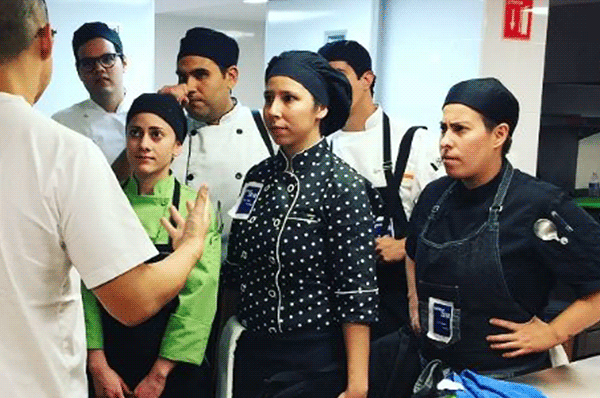Mexican chefs speak out on ‘smoke and mirrors’ Merivale experience

A group of former Merivale chefs from Mexico say they were sold a dream — only to find themselves overworked, underpaid and at risk of deportation if they spoke up. Their claims prompted the Fair Work Ombudsman to launch an investigation into the hospitality heavyweight, which is currently expanding its empire across Sydney and Melbourne.
“The Fair Work Ombudsman is investigating Merivale Hospitality Group,” a spokesperson confirmed to the Sydney Morning Herald, urging affected workers to come forward.
The report comes after a damning television expose on 60 Minutes on Sunday night as part of an investigation into the industry being carried out by the SMH, 60 Minutes and The Age.
The probe follows a recent $19.5 million class action settlement over wage theft claims — a case Merivale settled without admitting fault. The company, which owns venues like Mr Wong and Totti’s, has denied wrongdoing, maintaining that its pay practices meet or exceed award entitlements.
But migrant chefs paint a different picture.
Recruited through glossy campaigns and cooking challenges, the chefs were promised competitive wages, short shifts, and a pathway to permanent residency. “Everything sounded perfect,” one chef said. “But it was a nightmare.”
Instead, many worked 60-plus hour weeks, often without breaks or overtime. Several lived in overcrowded apartments, battled exhaustion, and feared losing their visa sponsorship if they complained.
Rodrigo Santos, who worked at Hotel CBD and The Paddington, said: “Then at the end you see the roster, see the timesheets, and it says 40 to 45 hours, and you’re like, ‘Oh, I’m a sponsor, so maybe that’s normal’.”
Another chef recalled senior staff using their visa status as leverage.
Chefs claim they were bullied, mocked for their language or heritage, and driven by fear to accept unsafe or unfair working conditions. “They knew they could treat people like shit because no one was going to have a confrontation with them,” one said.
Rodrigo Zavaleta described it bluntly to the SMH: “[Merivale] preferred to exploit humans instead of vegetables.”
Permanent residency was seen as a “golden ticket,” and many chefs stayed silent to keep the dream alive. But more than half reportedly left before securing PR.
The chefs said their $13,000 “support program” fee was deducted from their salaries during their first 18 months in Australia. Most were paid minimum wage for roles advertised as more lucrative.
Workweeks often exceeded legal limits, with records showing one employee logged 60 hours but was paid for just 38. Internal emails allegedly encouraged managers to ensure staff were reaching 45-hour minimums.
One chef recounted sleeping on old sofas between shifts at Mr Wong. Another, a mother of four, recalled missing school events and struggling to afford rent. “I just worked, worked, worked… but it wasn’t enough,” she said.
Many of those who stayed eventually secured permanent residency, though not without cost. Some report ongoing injuries and mental health challenges. “I’m glad I’m here,” said Zavaleta.
“[I just wish] they had told me, ‘Hey, we’re going to treat you like shit… but in five or six years, you’re going to become a resident of this beautiful country.’”
“But they didn’t deliver it like that. It was all smoke-screens and make-believe.”
Merivale has denied targeting migrant workers or receiving formal complaints. Alliance Abroad, the recruitment firm involved, says only a small number of chefs raised concerns.
Both organisations are reportedly preparing for another recruitment drive in Mexico.
Jonathan Jackson, 30th June 2025







